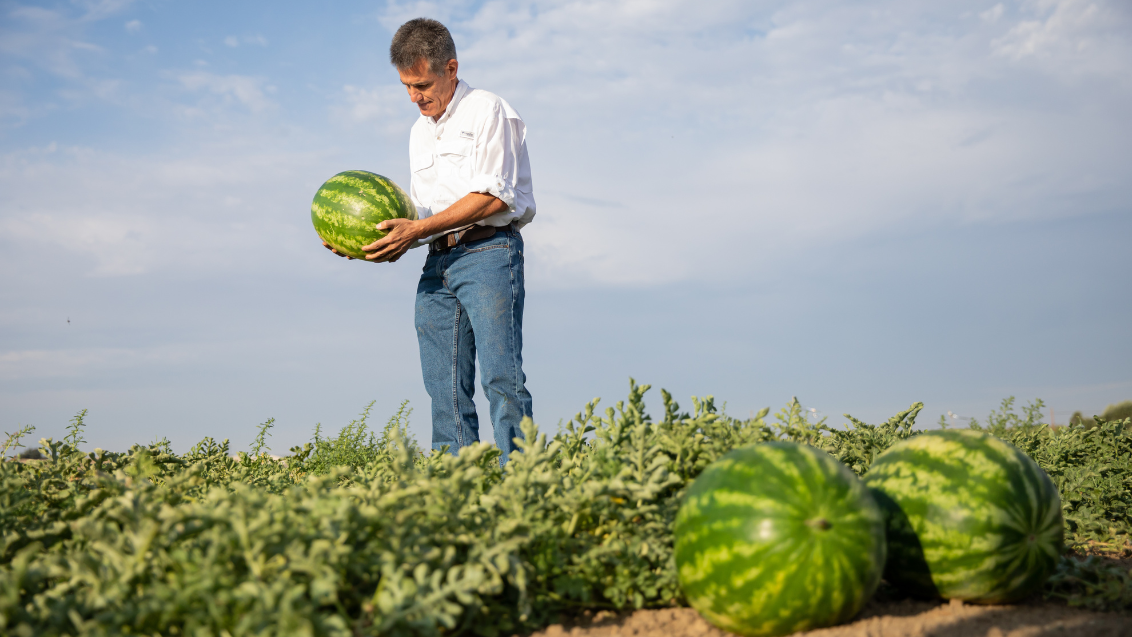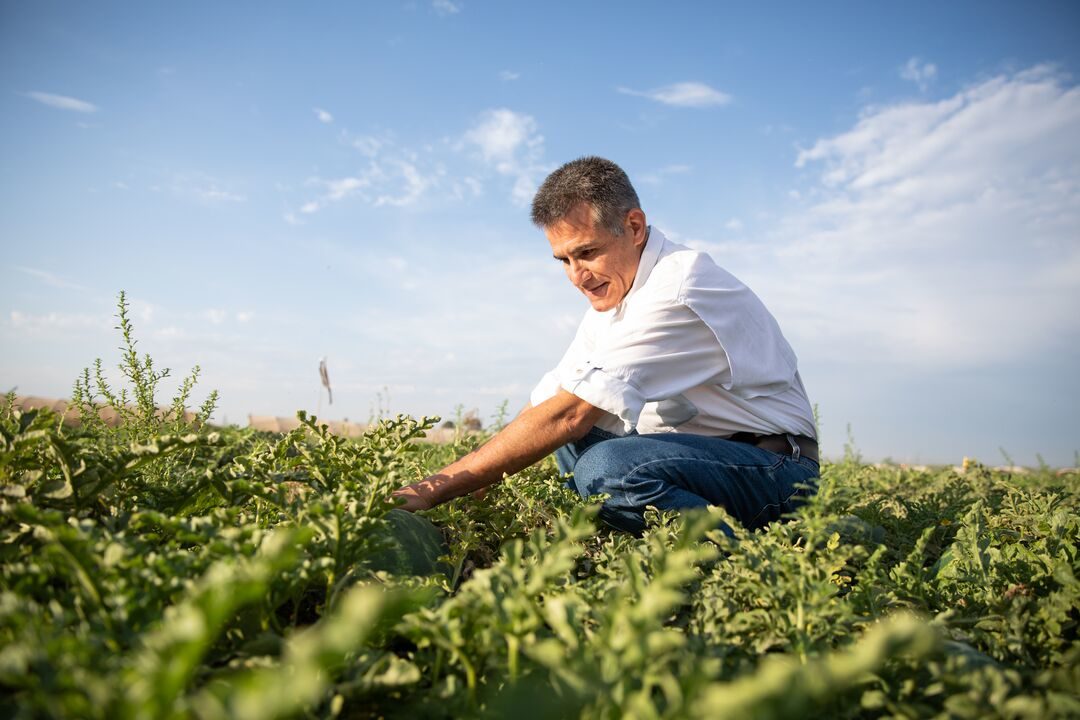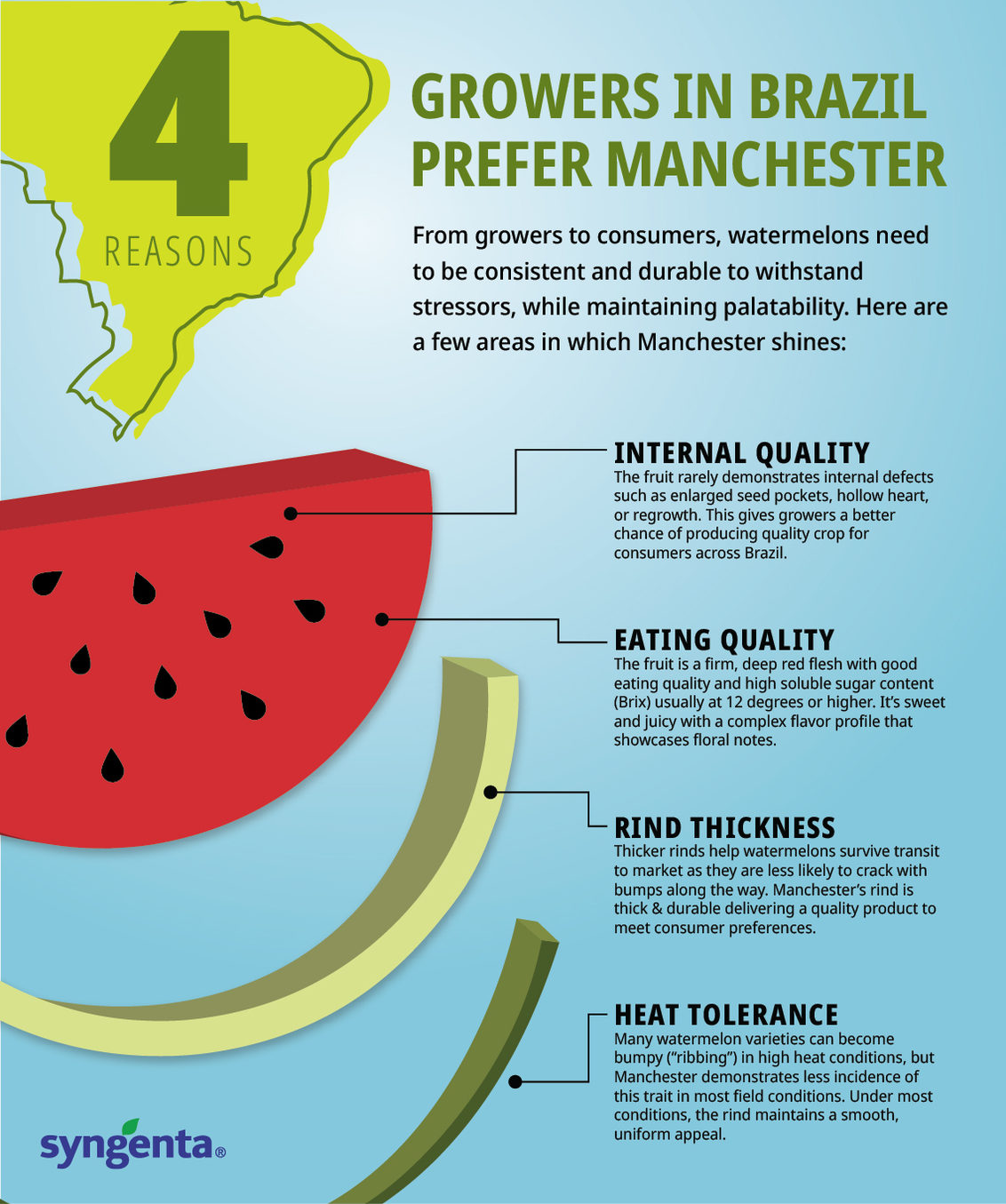Brazil
December 4, 2024

Lost and looking for direction, Alecio Schiavon was at a pivotal point in his life" he was trying to decide what profession to pursue. Suddenly, it hit him.
“It was like God put his hand on my head and said you will be an agronomist,” he said. “I was looking out at my family’s farm and just loved that feeling of being in nature. In that moment, I knew it’s what I was supposed to do.”
Though his family grew soybeans, Schiavon found his way into the vegetable seeds business and joined Syngenta in 1999. For the past 23 years he’s partnered with Brazilian farmers, today serving as the Senior Product Development Specialist for Cucurbit and Brassica crops in Brazil and Paraguay.
Since joining Syngenta, he has been on the lookout for new opportunities for the Brazilian market and continues to search for the next game-changing genetics for growers, while continuing to support one of the most popular seeded watermelon varieties in the country. And it all started at his parents’ small family farm.
When Schiavon started his career with Syngenta, Brazilian growers were seeking a seeded watermelon that withstood many regional production challenges, including access to inputs and technology, transportability, and disease pressure. In 2007, he first saw variety 2319 while visiting watermelon breeding trials at the Syngenta research station in Woodland, California.

“I remember the first year I saw it: I told the breeders ‘I want that,’” he recalled. “The funny thing is, the next year I selected a variety by a different name that was also very good but still asked the breeders where is 2319? The breeder had changed the variety code name and I still selected it again in a blind evaluation during the second year. Then I knew we were really looking at something special – something our farmers truly needed. Then, in 2011, we finally introduced it.”
“But we couldn’t use the 2319 name, because it was just a little boring, so I found something we all loved: soccer!” Schiavon added. “Manchester’s (United Kingdom) soccer team was pretty good at the time, we were all rooting for them, and their jerseys were red like watermelon flesh. It was perfect.”
The Manchester Difference
Eleven years later Manchester watermelons are the variety of choice for every link of the value chain in Brazil. Its favored status is due to desirable traits for growers and consumers.
“It’s very consistent overall,” said Erin Doughtie, Americas Regional Portfolio Lead for Watermelon. “Its consistent size, uniform production, good transportability, and field holding capacity, means growers feel they have a reliable product to deliver to the market.”
Manchester is a leading variety with sizable market share in the large-seeded segment and highly resilient to challenging journeys to markets throughout the country.
“You don’t always think about it, but Brazil is a huge country,” Doughtie added. “Watermelons can be in the truck for days at a time, and depending on which region the fruit is coming from, the road conditions vary widely . The rind must be resilient to many bumps along the way, which Manchester does well.”

Manchester isn’t just durable, it’s adaptable, too. It can be planted almost anywhere from the northernmost to the southernmost point of the country and has excellent field holding ability to give growers harvest window flexibility. If growers want to delay harvest for prices to improve, the fruit can stay on the plant for up to two weeks without over-ripening.
“In 2021, approximately 34,000 hectares (84,016 acres) of Manchester watermelons were planted in Brazil,” Schiavon said. “We grow watermelons every day of the year. If you’re harvesting in one part of the country, you’re planting in another. Watermelon is so popular in Brazil because everyone – regardless of background or geography – eats it.”